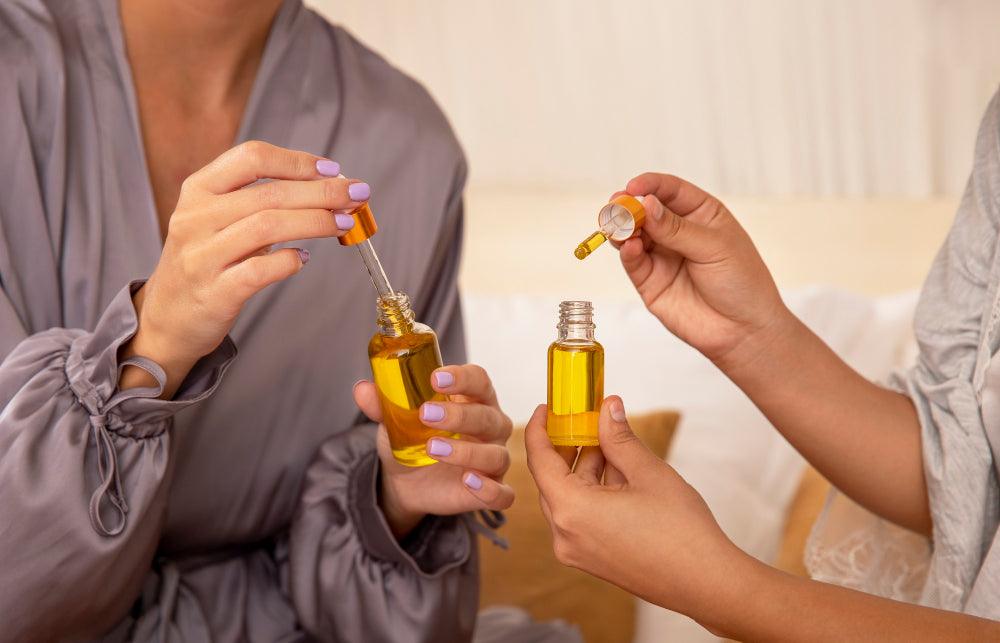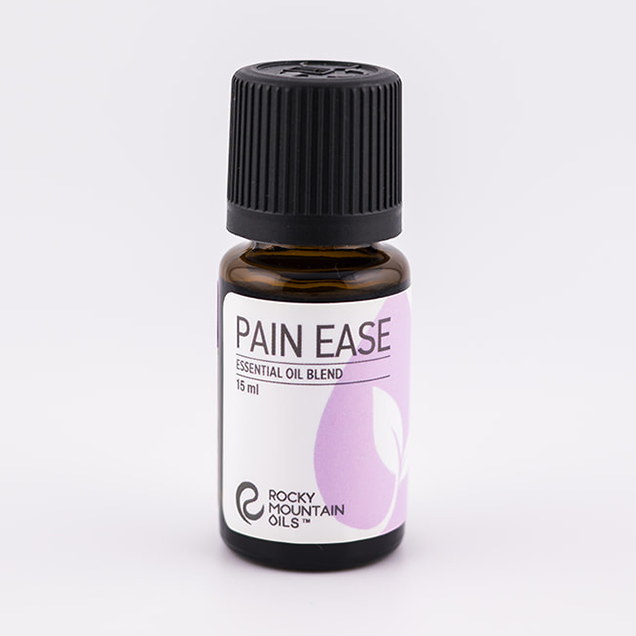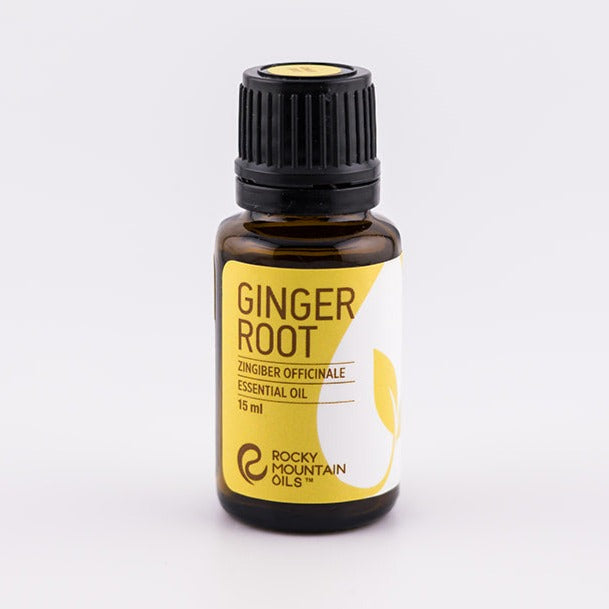Does essential oil expire?: The Secrets Behind Essential Oils
Essential oils have become increasingly popular in recent years, as people look to them for various benefits such as relaxation, therapeutic properties, or simply for their pleasant scent. However, many wonder if essential oils expire and how to ensure their safety while maximizing their benefits. It is important to have a clear understanding of this to make the most of your essential oils.
Does Essential Oil Expire?
Essential oils, being natural products, indeed have a shelf life. However, several factors determine how long they last.
The Nature of Essential Oils
Contrary to popular belief, essential oils aren't oils. They are highly concentrated plant extracts, and their chemical composition can vary greatly. This makes some essential oils more prone to deterioration than others.
Recognizing Expired Essential Oils
The scent is the first giveaway. If the aroma changes or weakens, it's a sign. Additionally, if the oil becomes thick or cloudy, it's probably past its prime.
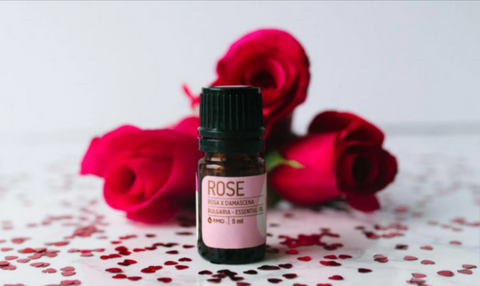
The Chemistry Behind Essential Oils
Understanding essential oils requires a peek into their chemistry.
Volatility of Essential Oils
Essential oils are volatile, meaning they evaporate quickly. This characteristic can affect their longevity, especially if improperly stored.
Oxidation Process in Essential Oils
Over time, essential oils undergo oxidation, which can alter their chemical structure, diminishing their quality and efficacy.
Impact of Light and Air
Constant exposure to air and light can accelerate the oxidation process, leading to quicker expiration.
Optimal Storage for Essential Oils
Maximize your essential oils' lifespan with proper storage techniques.
Best Containers for Essential Oils
Dark-colored glass bottles are the best choice. They block out light and maintain oil integrity.
The Role of Temperature
A cool, dry place can do wonders in extending the life of your essential oils.
Keeping Essential Oils Away from Sunlight
Sunlight can be detrimental. Always store your oils in a dark place, away from direct sunlight, in the refrigerator, or in a drawer or cupboard.
Proper Sealing Techniques
Ensure the bottle caps are always tightly sealed to prevent unnecessary air exposure.
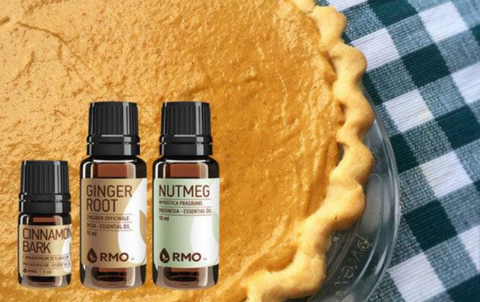
Benefits of Fresh Essential Oils
Using fresh oils ensures you get the most out of them.
Maximum Therapeutic Benefits
Fresh oils retain their therapeutic properties, ensuring you reap all their benefits.
Enhanced Aromatherapy Experience
The aroma is more potent, enhancing your aromatherapy sessions.
Safety of Use
Expired oils can cause adverse reactions. Fresh oils minimize this risk
Why Do Essential Oils Expire?
Despite their natural origin and potency, essential oils are not immune to degradation. Just like many other products, they have a shelf life. But why do these oils, derived from plants and appearing so resilient, expire? The answer lies in their chemical composition, exposure to environmental factors, and how they are stored.
Chemical Composition of Essential Oils
- Volatility: Essential oils are volatile compounds. This means that they readily evaporate at room temperature. Over time, this evaporation can lead to a decrease in the oil's potency and efficacy.
- Oxidation: As essential oils come into contact with air (oxygen), they can undergo oxidation. This chemical reaction can alter the composition of the oil, leading to a change in aroma and potential therapeutic properties.
- Degradation: The unique constituents in each essential oil can break down over time. This degradation can result in the loss of beneficial properties and produce undesirable compounds.
Environmental Factors
- Light: Exposure to light, especially direct sunlight, can degrade essential oils. The sun's ultraviolet (UV) rays can alter the oil's chemical structure, leading to reduced efficacy and an altered aroma.
- Heat: Essential oils can lose their therapeutic properties when exposed to high temperatures. Heat can speed up the oxidation process, making the oil expire faster.
- Moisture: Even a tiny amount of water or humidity can introduce bacteria or fungi into the essential oil bottle. This can cause contamination and spoilage of the oil.
Storage Practices
- Bottle Material: Essential oils should ideally be stored in dark amber or cobalt blue bottles. These colored bottles help protect the oils from light exposure. Clear bottles or storing them in clear containers can expedite the degradation process.
- Bottle Closure: Not sealing the bottle properly can lead to increased exposure to oxygen, accelerating the oxidation process. Always ensure the cap is tightly closed after each use.
- Location: It's best to store essential oils in a cool, dark place. Storing them near a window, heater, or in a car can negatively affect their shelf life.
Why Does Expiry Matter?
Understanding why essential oils expire is crucial for multiple reasons:
- Efficacy: Using expired oils can reduce the benefits you hope to achieve. Over time, the therapeutic properties can diminish, making the oil less effective.
- Safety: Expired oils can cause skin irritations or allergic reactions. As the composition changes, new compounds that weren't initially present might form.
- Economic Value: Investing in essential oils requires money. Using them past their expiration means you might not be getting the value you paid for.
Essentially, essential oils, like many other natural products, are susceptible to changes over time due to their inherent chemical makeup and external environmental factors. Proper storage and understanding their shelf life can ensure you derive maximum benefit from these aromatic compounds. Always check the expiry date and perform a smell test when in doubt. Does the oil smell rancid or different? If yes, it's best to replace it.
How can you tell if your essential oil is expired?
Essential oils, known for their therapeutic properties and delightful fragrances, have become a staple in many households. But, like any natural product, essential oils do not last indefinitely. Using expired oils may not provide the desired effects and, in some cases, could cause adverse reactions. Thus, knowing when your essential oil has passed its prime is crucial.
Here's how to determine whether your essential oil has expired:
1. Smell Test
- Natural Degradation: Essential oils will undergo natural degradation over time, which can change their aroma.
- Unexpected Scent: If the oil smells rancid, sour, or simply different from when you first purchased it, it might be expired.
- Note: Some oils, like patchouli or sandalwood, may improve with age, much like wine. Still, a drastic or off-putting change in scent is a good indicator of expiration.
2. Observe the Color and Clarity
- Color Changes: Essential oils may change color as they age. For instance, clear oils might become yellowed or cloudy.
- Sediment Formation: The appearance of sediment or particles at the bottom of the bottle indicates that the oil may have degraded.
- Note: Always remember that some essential oils are naturally colored or may contain natural sediments. Always compare with the oil's original appearance.
3. Touch Test
- Place a drop of the oil on your fingertips.
- Expired oils may feel sticky or thicker than usual. Fresh essential oils typically have a smooth consistency and are easily absorbed by the skin.
4. Irritation Test
- Patch Test: Before using any essential oil, especially if you suspect it might be expired, do a patch test. Apply a drop diluted in carrier oil to a small area of your skin and observe for any reactions.
- Increased Sensitivity: Expired oils can cause increased sensitivity or reactions on the skin, including itching, burning, or rashes.
Factors Affecting Essential Oil Shelf Life
While it's crucial to know the signs of an expired essential oil, it's equally necessary to understand the factors that can influence its longevity:
- Storage Conditions: Oils should be stored in a cool, dark place. Exposure to sunlight, heat, and air can hasten their degradation.
- Bottle Material: Dark-colored glass bottles, like amber or blue, are ideal as they protect the oil from light exposure.
- Cap Tightness: Always ensure the cap is tightly sealed to prevent air from entering, which can lead to oxidation.
Determining the expiry of your essential oil involves a combination of observation and sensory tests. While manufacturer's dates provide a general guideline, always trust your senses if you suspect your oil has degraded. Proper storage can significantly extend the life of your essential oils, so invest in the right conditions to enjoy their benefits for longer. Remember, always prioritize your safety. If in doubt about an oil's freshness, it's best to replace it.
What’s the Best Way to Dispose of Expired Essential Oils?
Essential oils are beloved for their myriad therapeutic and aromatic qualities. However, like any other product, they have a finite shelf life. When they expire, knowing the safest and most environmentally friendly ways to dispose of them is crucial. Improper disposal can harm the environment, pets, and even humans. So, how should you handle expired essential oils?
1. Do Not Pour Down the Drain
- Environmental Impact: Pouring essential oils down the sink or toilet can contaminate waterways, affecting marine life and even drinking water quality.
- Household Plumbing: Some oils can solidify or cause build-ups, leading to blockages in your plumbing.
2. Absorb with a Neutral Material
- Use of Absorbents: If you have a small amount of expired oil, mix it with an absorbent material like cat litter, sawdust, or sand.
- Safe Disposal: Once the oil is absorbed, place the mixture in a sealed bag and dispose of it in your regular trash.
3. Recycle the Bottles
- Clean Thoroughly: Before recycling the bottles, ensure they are cleaned of any residual oil. You can rinse them with warm, soapy water and let them air dry.
- Local Recycling Programs: Check with your local recycling program to ensure they accept glass bottles. Remember, colored glass, like the amber bottles often used for essential oils, is recyclable.
4. Repurpose the Bottles
- DIY Projects: Cleaned essential oil bottles can be used for various DIY projects like creating oil blends, storing homemade perfumes, or even as tiny vases for small plants or flowers.
- Travel-friendly Containers: Their compact size makes them perfect for storing small amounts of lotions or other liquids when traveling.
- Empty Bottles for New Blends: After you have emptied a bottle you can peel the label off then add a few drops of lemon oil to the side of the bottle. This will help remove the adhesive and it can be scrubbed clean. Now you have an empty 15ml bottle for your own blends!
5. Donate to Local Schools or Art Centers
- Some schools or art centers might be interested in using the bottles for art projects or scientific experiments. Always ensure the bottles are clean before donating.
6. Use as a Cleaner
- While the therapeutic properties might have diminished, expired oils can still be potent cleaners.
- DIY Cleaning Solution: Mix the expired oil with water and white vinegar to create a natural cleaning solution. This mixture can clean countertops, floors, and other surfaces.
7. Use in the Garden
- Natural Pesticide: Some essential oils act as natural repellents for specific pests. Even if expired, they might still deter pests when diluted with water and sprayed on plants.
- Caution: Ensure the oil you're using is safe for plants and won't harm beneficial insects.
Things to Remember
- Never Burn or Incinerate: Burning expired essential oils can release harmful toxins into the air.
- Avoid Direct Disposal: Do not throw undiluted essential oils into the garbage, as they can contaminate the soil or harm animals that come into contact with them.
- Safety First: Always keep essential oils, expired or not, out of reach of children and pets.
Disposing expired essential oils requires a thoughtful approach to ensure safety and minimal environmental impact. By following the guidelines above, you can ensure you're handling these products responsibly. In the future, consider purchasing oils in quantities you can use up within their shelf life to reduce waste. Responsible consumption and disposal are critical to a more sustainable and eco-friendly lifestyle.
FAQs - Does essential oil expire?
Does essential oil expire even if the bottle is unopened?
Yes, essential oils can expire even if unopened. However, they typically last longer in sealed bottles due to limited exposure to air and contaminants.
How can I identify if my essential oil has expired?
Look for changes in the oil's aroma, consistency, and color. An expired oil might have a weaker or altered scent, become thick or cloudy, or change color.
Is it safe to use expired essential oils on the skin?
Using expired essential oils on the skin is not recommended. Over time, oils can undergo chemical changes, potentially leading to skin irritations or allergic reactions.
Do all essential oils have the same shelf life?
No, the shelf life of essential oils varies. Some oils, like citrus ones, have a shorter shelf life, while others like sandalwood or patchouli might last longer.
Can I extend the shelf life of my essential oils?
While you cannot stop the natural aging process of oils, proper storage can significantly extend their shelf life. Store them in dark-colored glass containers, away from sunlight, heat, and air to maintain their quality.
Do carrier oils used with essential oils affect their expiration?
Yes, carrier oils have their own shelf life, which can influence the mixture's overall longevity. Always ensure both the essential oil and the carrier oil are fresh before mixing.
Essential oils offer many benefits, but it's important to understand their shelf life for safety and maximum benefits. Proper storage, regular checks, and knowing the factors that affect their longevity can extend their life. Ensure freshness by using them within their optimal period. Your well-being deserves the best.
How many years do essential oils last?
Essential oils typically last between 1 to 5 years, depending on the type of oil and how it's stored. Citrus oils like lemon, lime, and bergamot have a shorter shelf life, usually lasting around 1-2 years. Oils like lavender, eucalyptus, and tea tree can last up to 3 years, while thicker oils like sandalwood, cedarwood, and vetiver can last up to 5 years. Proper storage, which includes keeping the oils in a cool, dark place and amber or blue glass bottles, can help extend their longevity. It's always a good idea to check the expiration date if provided and periodically check the oil's scent and consistency to ensure its quality.
When should you not use essential oils?
Essential oils offer therapeutic and aromatic benefits but should be used with caution. It's vital to avoid using certain oils during pregnancy, around young children pets, or when taking specific medications. Always consult a healthcare professional and conduct patch tests to ensure safety before widespread use.
Do essential oils lose their scent?
Yes, essential oils can lose their scent over time due to oxidation, evaporation, or degradation of aromatic compounds. Factors like exposure to light, heat, air, and improper storage can accelerate this process, leading to diminished aroma and therapeutic properties. Proper storage in the dark, cool places, and tightly sealed containers can help prolong the scent and efficacy of essential.
What essential oil kills smells?
Tea tree oil is renowned for its antimicrobial properties and ability to neutralize odors, making it a popular choice for eliminating smells. Other essential oils known for their deodorizing properties include eucalyptus, lemon, lavender, peppermint, and pine. These oils can be used in diffusers, sprays, or combined with baking soda as natural deodorizers to combat and neutralize unpleasant odors in the environment.
Conclusion
In conclusion, the longevity of essential oils is a topic that requires careful consideration. While essential oils do not technically expire in the same way that food or medication does, their potency and quality can deteriorate over time. Factors such as storage conditions, exposure to light and heat, and the type of essential oil can all influence their shelf life. Users need to be aware of these factors and take proper precautions to ensure the longevity and effectiveness of their essential oils. Regularly assessing essential oils' scent, appearance, and therapeutic properties can help users determine whether they are still suitable for use. Understanding the secrets behind critical oil expiration empowers individuals to make informed choices and maximize the benefits of these natural aromatic compounds in their daily lives.

